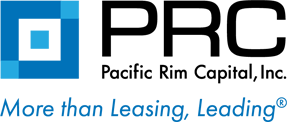Dave Mirsky is CEO and cofounder of Pacific Rim Capital, Inc., a leading independent lessor of material handling equipment, which he established in 1990. He is also a member of the Executive Committee of the Equipment Leasing and Finance Association.
The new US accounting rules for leases have finally arrived. They reduce some of the financial advantages of leasing. Equipment leased under operating leases (Fair Market Value) which were formerly not placed on the balance sheet now will be. Rentals will no longer be expensed in a straight line. Now, we will be depreciating an asset called a “Right to Use”; an asset that we don’t own. (The FASB in the USA is still going to allow straight line expensing of payments).
Not to be overly technical, but we can say one of the major benefits of leasing has been removed.
Does it still make sense to lease forklifts and related equipment?
The answer is that it does – under the correct circumstances. If one’s motivation is to do simple financial engineering, I would say no. However, if the reason that you are considering leasing in the future or actively leasing now is to maximise the efficiency of your materials handling equipment strategy, and if you generally use your equipment such that your hours will be high enough to result in increased maintenance costs within three to five years, then the answer is a definite “yes”.
The minute a forklift is started, its value decreases. Every hour on the meter results in a lower fair market value. MHE are depreciating assets. Depreciating assets, especially those used in business, make perfect candidates for leasing. That is why cars, jets, computers and similar equipment are often leased.
Let’s assume that you expect to use your forklift for 2,000 hours per year. If it is electric, that might argue for at least a five-year term. But the economy is uncertain and demand can waver. At the end of a lease, we often find that our lessees have underutilised their assets. We will suggest that this client renews (at a discount) the specific units with lower hours for a long enough term to reach the planned total, resulting in significant savings.
In contrast, a vendor lessor will usually tell you that you need new equipment because your leases have expired. This is their job, so don’t hold it against the messenger. However, the fact is that the vendor lessors work for the manufacturers and their job is to make it easier to sell more units. They do not represent you.
A lease will give you the flexibility to manage to your demand and the right lessor will be there to do what is in your best interest. The independent lessor works for you and not a bank or a manufacturer.
A good lessor knows that service, accuracy, and flexibility are major differentiating factors between leasing companies. If you lease, look for a lessor who will work for you, will do things right, who can operate in the same countries and currencies that you do and who owns and controls its own assets. Check references. Talk to other users. Look for the experts.
In the future, I will write more about how to select a good lessor.
Article from forkliftaction.com

